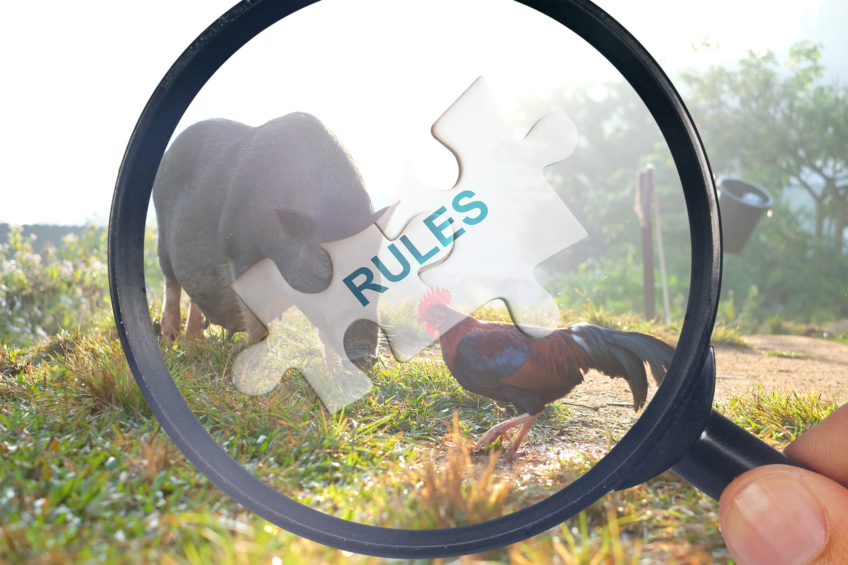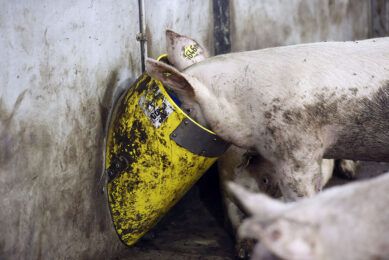UK inches closer towards lifting ban on pig PAPs

The UK takes tentative steps to lift the ban on pig and poultry processed animal proteins in the UK, according to the European animal by-product processing sector (EFPRA).
EFPRA president Robert Figgener said the final months of 2024 had shown a welcome development in lifting the feed ban on pigs and poultry PAPs, which was introduced following the BSE epidemic in the 1980s, which led to the slaughter of 4m cattle and the death of 178 people from the human variant, Creutzfeldt-Jakob disease.
Figgener said EFPRA was closely supporting FABRA UK in ensuring a positive response to a consultation launched in the autumn by the Scottish Government.
EU rules regarding PAPs
The European Union changed legislation in September 2021 to allow poultry PAPs to be used in pig diets, while porcine PAPs can be used in poultry diets. Inclusion rates in feed are typically in the range of 5-10%.
Processed animal proteins
PAPs have higher protein content that common feed ingredients like rapeseed, soya and lupin and provide a local source of protein for animal feed. They are produced from Category 3 material – fit for human consumption at the point of slaughter and come from fully traceable supply lines to eliminate the possibility of intra-species consumption.
Early days for UK decision on PAPs
Adrian Kesterson, technical advisor to the animal by-products trade association FABRA UK, said it was still early days as to whether the UK would follow the EU in lifting the feed ban for pigs and poultry.
“At the moment there is a consultation in Scotland on permitting poultry PAPs in pig feed and porcine PAPs in poultry feed. The consultation also covers the use of insect meal and ruminant gelatine in animal feed.”
Kesterson said a similar consultation was due to open in England and Wales later this year: “If the outcome of the consultation is positive, then the government will draft the relevant legislation, but this will take time. Realistically, the rules will not change until 2026 at the earliest.
“The good news is that farmers and feed producers are keen to have access to the same raw materials as their counterparts in Europe. The attitude of consumers and retailers is harder to judge but UK consumers are not very different to those in Europe and there has not been a backlash in Europe since the rules changed in 2021,” he claimed.
Request to WOAH to change BSE risk status
England, Wales and Scotland have also applied to the World Organisation of Animal Health (WOAH) to change the BSE risk status from “controlled” to “negligible” which will help with meat and by-product exports. WOAH’s decision is expected later this year although even if granted, legislation will need to be revised.
Risk assessments from the Animal and Plant Health Agency suggest the risk today in the UK from transmissible spongiform encephalopathies (TSEs), such as BSE, would be low if the PAP proposal was implemented.
The British Veterinary Association in its submission to the Scottish consultation, said it was generally supportive of lifting the ban given the low risk of a TSE outbreak, according to the Guardian newspaper.
But it does have concerns “over the risks to animal health presented by other potential pathogens such as African swine fever, classical swine fever or porcine epidemic diarrhoea virus.”
“As BSE has demonstrated, unexpected disease breakthroughs can occur with hugely significant animal and human disease consequences. We also have concerns with the risks to animal and public health from importation of animal-derived protein or the products being made from imported meat, given the risk of less effective controls over inputs and ability to ensure quality and safety in the country of origin,” it added.
Compassion in World Farming has said its organisation could support the feeding of animal products to omnivores, such as pigs and chickens, but it had concerns over the use of insects.”








